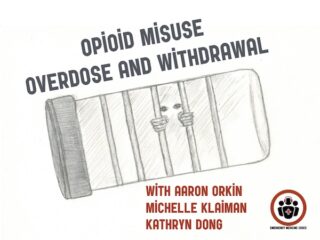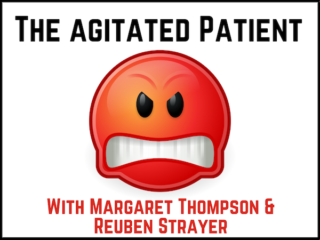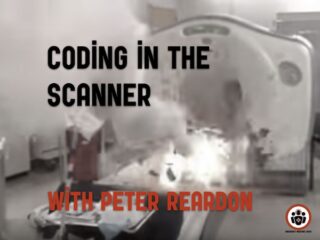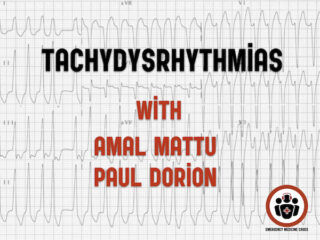Resuscitation
JJ 14 Epinephrine in Cardiac Arrest
Does epinephrine improve the chances of return of spontaneous circulation at the expense of the brain? In other words, while we know that epinephrine doubles rates of ROSC in all comers in cardiac arrest, there’s never been robust evidence for long term improvements in neurologic functional outcomes. So, are we saving lives, or are we prolonging death? Find out the answer in this Journal Jam podcast with Justin Morgenstern and Rory Spiegel...
Ep 116 Emergency Management of Opioid Misuse, Overdose and Withdrawal
In this episode Dr. Kathryn Dong, Dr. Michelle Klaiman and Dr. Aaron Orkin discuss the latest in naloxone in opioid overdose cardiac arrest and altered LOA, a 5-step approach to ED opioid withdrawal management and how we can improve mortality and morbidity in patients with opioid use disorder in the era of the opioid epidemic...
Ep 115 Emergency Management of the Agitated Patient
Managing acutely agitated patients can cause anxiety in even the most seasoned emergency doctor. These are high risk patients and they are high risk to you and your ED staff. It’s important to understand that agitation or agitated delirium is a cardinal presentation – not a diagnosis. There is pathology lurking beneath - psychiatric, medical, traumatic and toxicological diagnoses driving these patients and we just won’t know which until we can safely calm them down...
BCE 74 Coding in the Scanner
In anticipation of EM Cases Episode 113 Diagnosis an Workup of Pulmonary Embolism with Dr. Kerstin DeWit and Dr. Eddy Lang, we have Dr. Peter Reardon telling us his Best Case Ever (Coding in the Scanner) of a young woman who presents with a seizure followed by hemodynamic instability, who codes while in the CT scanner...
Ep 112 Tachydysrhythmias with Amal Mattu and Paul Dorian
In this EM Cases main Episode 112 Tachydysrhythmias with Amal Mattu and Paul Dorion we discuss a potpurri of clinical goodies for the recognition and management of both wide and narrow complex tachydysrhythmias and answer questions such as: Which patients with stable Ventricular Tachycardia (VT) require immediate electrical cardioversion, chemical cardioversion or no cardioversion at all? Are there any algorithms that can reliably distinguish VT from SVT with aberrancy? What is the "verapamil death test"? While procainamide may be the first line medication for stable VT based on the PROCAMIO study, what are the indications for IV amiodarone for VT? How should we best manage patients with VT who have an ICD? How can the Bix Rule help distinguish Atrial Flutter from SVT? What is the preferred medication for conversion of SVT to sinus rhythm, Adenosine or Calcium Channel Blockers (CCBs)? Why is amiodarone contraindicated in patients with WPW associated with atrial fibrillation? What are the important differences in the approach and treatment of atrial fibrillation vs. atrial flutter? How can we safely curb the high bounce-back rate of patients with atrial fibrillation who present to the ED? and many more...
BCE 73 Esmolol in Refractory Ventricular Fibrillation
In anticipation of EM Cases Episode 112 on Tachydysrhthmias with Amal Mattu and Paul Dorion, Melanie Baimel tells her Best Case Ever of a previously healthy young man who presents in refractory ventricular fibrillation after receiving multiple single shocks, ongoing chest compressions, several rounds of epinephrine, amiodarone and dual sequence defibrillation without ROSC...







